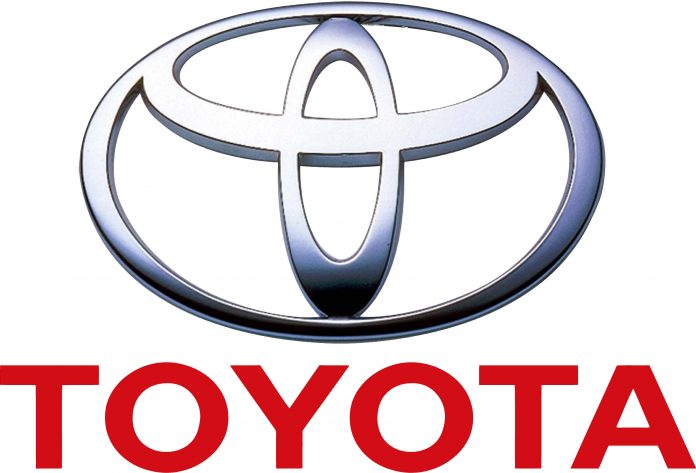Toyota Motor Corp. President Akio Toyoda speaks of an impending “sense of crisis” as profits at his family founded company spiral downward.
Operating profit tumbled 20 percent to 438.9 billion yen ($3.94 billion) in the carmaker’s fiscal fourth quarter ended March 31. Net income slid 6.6 percent to 398.4 billion yen ($3.58 billion), the company said Wednesday while announcing full-year earnings results.
The fourth-quarter slump sealed a retreat in full-year profits, with both 12-month operating profit and net income falling from the previous year.
Toyoda said he felt a sense of crisis as the company braced for two consecutive years of falling profits and said that Toyota would streamline operations to bolster margins.
“I feel a strong sense of crisis about whether or not we are actually executing car-making from the perspective of the customer in all Toyota workplaces, from development, production, procurement and sales, all the way to administrative divisions,” Toyoda said.
“In the case of sports, booking two consecutive years of losses would mean you are failing,” said Toyoda, grandson of the company’s founder. “I hate to be beaten.”
Toyota lost its title as the world’s biggest automaker to German rival Volkswagen Group in calendar year 2016, with worldwide volume inching ahead just 0.2 percent to 10.2 million vehicles. But that fell short of the 10.3 million vehicles VW reported selling for a 3.8 percent bump.
Toyoda warned that profits will fall again in the current fiscal year ending March 31, 2018.
Operating profit is expected to slide 20 percent to 1.60 trillion yen ($14.38 billion), while net income is forecast to decline 18 percent to 1.50 trillion yen ($13.48 billion).
Global retail unit sales are seen essentially flat at 10.25 million vehicles, while worldwide wholesale deliveries are forecast to dip 0.8 percent to 8.9 million units.
The reversal is exacerbated partly by spiraling outlays for such things as higher incentives, increased labor costs and ramped up investments in manufacturing sites.
Toyoda said his company has made big advances in developing better vehicles with its new modularized platform. Called the Toyota New Global Architecture, or TNGA, it underpins such nameplates as the redesigned Camry sedan and CH-R compact crossover arriving stateside this year. But the company needs to improve the way it makes vehicles to be more competitive.
“When it comes to making ever-better cars in a smart way, it is becoming apparent that there is still room for improvement,” Toyoda said, adding that the company will focus on streamlining operations in the current fiscal year. Last year, Toyoda recently reorganized the company to create internal sub-companies that are freed to act more independently and nimbly.
It will take time for results of that overhaul to show, he said.











Actually, this is a beautiful thing in terms of the market. What it means is that Toyota got too comfortable with their existing structure and failed to innovate, either in lowering cost of production or in producing desirable vehicles, relative to the rest of the market, including consumer demand and preferences.
In a free market, you can’t sit still and expect to always succeed. You constantly have to compete to do things better, cheaper, or faster. It’s refreshing to read about a company CEO openly taking responsibility for the failure (however relative that might be) and proposing to look for more internal solutions rather than running to government for a bailout (I’m looking at you, Big Three).
I’m fully aware that the automotive industry is not as Free market as it should be, but it still has some freedom, which is the only reason we still see advances. I’m also fully aware the Japanese government provides numerous non-market driven subsidies of various kinds to its auto industry. Yet within the limits of the freedom they are allowed, this sort of statement is encouraging.
Is there really a problem, or is the “fall in profits” just a normal part of the natural ebb and flow of economies and cycles?
Companies get so worked-up over a fall in profits, or even failing to make a bigger profit than last year…… As long as they’re making a profit, maybe they shouldn’t worry so much.
As someone who has been self-employed virtually all of my life, I don’t stress when I have a bad year and make less than a previous year. Sometimes the business just isn’t there. And the pattern repeats every so often. It’s just part of the natural ebb and flow. Many small businessmen understand this. The only ones who tend to really fret over it, are those who are in debt. Solution: Stay out of debt!
Whether one is an individual or a humongous corporation, a good principle is to live below your means- then you’ll never have to sweat the slow periods. Of course, the norm today, for everyone from the welfare recipient couch-potato to JP Gotocks, is to live far beyond your means…..
Unless you KNOW that you are doing something (or failing to do something that you should be doing) that is causing the downturn in profits, sometimes, the best thing is to do absolutely NOTHING, and just keep on doing what you’ve been doing and wait it out. FAILURE to do so, I think is responsible for many companies going under quickly any time there is an economic hiccup. They’re too quick to change what has been working just fine for them; or spend zillions of dollars reinventing themselves, etc- and end up losing their loyal following, and essentially starting over again, in the midst of a crisis situation.
Often, if they’d just stay the course, they’d be fine. But instead, just because profits are down a bit- which shouldn’t be a big deal- many end up commiting financial suicide. Sometimes, the only reasons profits may be down, is that they had a banner year the year before. Heck, you can’t expect that all of the time. If one has a banner year, and then returns to “normal” the next year…sure, technically profits are down compared to the banner year. So what? It can’t be a banner year every year.
But corporate goals are be X% better than last year generally speaking. If you exceed expectations those become your expectations. It’s a perverse quality of a system of human civilization that is aiming for 20% working and 80% loafing. The reward for hard work is more work.
“Last year, Toyoda recently reorganized the company to create internal sub-companies that are freed to act more independently and nimbly.” That is truly refreshing. a leader who understands that centralization is unhealthy and decentralization essential to survival.
A big part of the driving force here was noted in the other article. Cars are too good now. When you build a car that is still basically new 10 years later, there is little incentive for people to keep buying new ones. As they have gotten more expensive and loan terms extended. Instead of a car paid off or nearly paid off in 3 years and traded on a new model, it is pushing 7 years.
Perhaps they need some sort of innovative sales model, similar to how they sell cell phones now. Put you on a zero interest plan, 5 years for full repayment but you can upgrade after 4 and the remainder is forgiven. Finding a way to keep the constant turn over for new cars seems to be critical to them and detrimental to us.
They could probably stop selling cars for the next five years and we wouldn’t even notice.